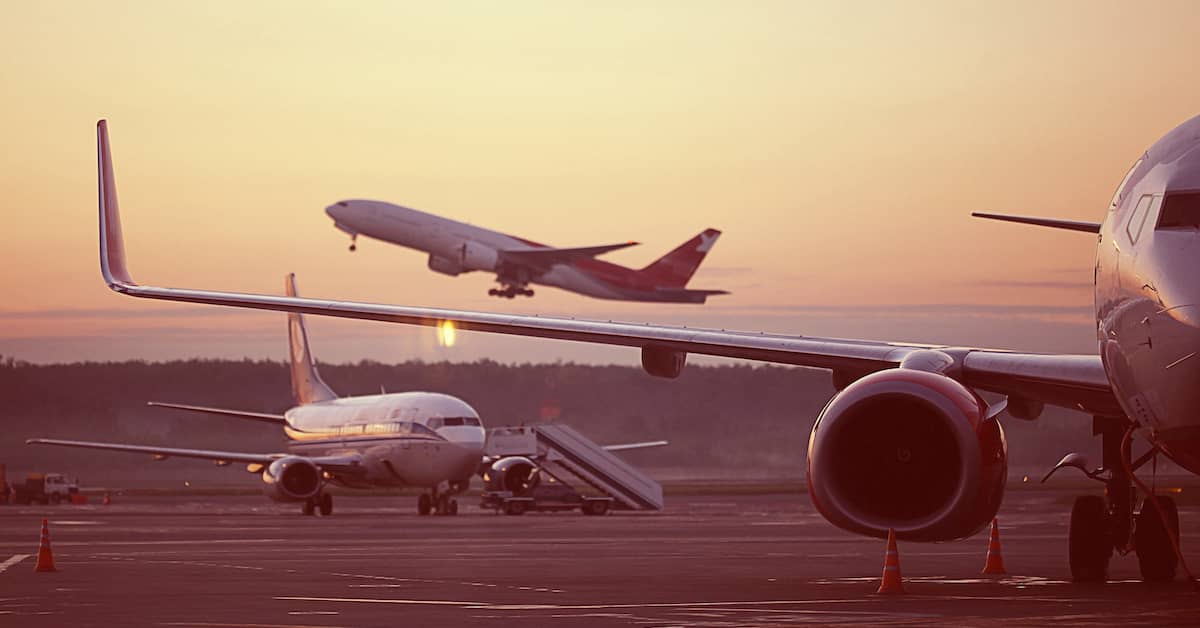
When we think of an aircraft accident, we often imagine those rare instances when a plane crashes because of bad weather or mechanical failure. We don’t consider the dangers of the runway.
The incidence of runway incursions is small in relation to the massive amount of traffic at every airport. However, incursions are more common than we, as passengers, realize. While many resolve themselves without injury, when those narrow misses connect, the destruction can be overwhelming.
That’s why it is essential to know what to do if you or a loved one is in an aircraft accident. This is a complex area of law, and you will often be butting heads with the airline’s high-priced attorneys. Having an experienced aviation accident lawyer like Patrick Daniel Law is in your best interest.
Our team is meticulous, strategic, and merciless in pursuing just compensation for our clients. Call (713) 999-6666 today for a FREE case review. We serve clients in Houston, all of Texas, and throughout the country.
The Federal Aviation Administration (FAA) Aviation Safety Summit met recently (March 15, 2023) to discuss safety measures “following a string of recent safety incidents, several of which involved airplanes coming too close together during takeoff or landing,” per the FAA Press Office. Remaining vigilant is vital in an industry that doesn’t have “small” accidents.
According to the FAA, a runway incursion is “any occurrence at an aerodrome involving the incorrect presence of an aircraft, vehicle or person on the protected area of a surface designated for the landing and take off of aircraft.” They are often referred to as a “near miss.” Though many result in no damage or injury, the potential for disaster is imminent.
In fiscal year 2022, the FAA recorded 1,732 runway incursions. According to SKYbrary, analysis of information collected from 2014–2016 revealed some common types of runway incursion. These are:
Due to the possibly catastrophic consequences of an aircraft accident, the FAA and the International Civil Aviation Organization (ICAO) must continue to study runway incursions. Evolving safety measures can help to save lives.
There are 5 categories of runway incursions ranging in seriousness from a collision to barely an issue. The level of severity of a runway incursion is based on the evaluation of 5 factors:
With those factors in mind, runway incursions are categorized as follows:
An incursion resulting in a collision.
A serious incident, but the collision is narrowly avoided.
Significant potential for collision, potentially requiring “time critical corrective/evasive” action to circumvent a collision.
There is ample time/distance to circumvent a collision.
There is an incorrect presence on the protected area of a surface, but there are no safety consequences.
The sources of runway incursions are not necessarily an indication of the cause. They are simply a classification system. The “source” is usually the last piece in the event. Sources are divided into operational incidents, pilot deviations, or vehicle/pedestrian deviations.
Operational incidents can be separated into two groups. Operational error is an “Action of an Air Traffic Controller (ATC) that results in: Less than required minimum separation between 2 or more aircraft, or between an aircraft and obstacles…or clearing an aircraft to take off or land on a closed runway.”
Operational deviation is also related to the ATC. However, it occurs when an aircraft, vehicle, equipment, or personnel are in a landing area that is not assigned to them “without prior coordination and approval,” per the FAA.
Pilot deviations occur when a pilot violates regulations—for instance, crossing a runway without clearance.
These occur when a vehicle or pedestrian enters a runway or taxiway without authorization from ATC.
In fiscal year 2022, per FAA statistics, operational incidents accounted for 309 of the 1,732 runway incursions. Similarly, vehicle/pedestrian deviations accounted for 313. Pilot deviations numbered 1,084, by far making up the majority of incursions.
A runway incursion is typically a result of a combination of contributing factors. According to SKYbrary, some of these factors may be:
In addition to these factors, global air traffic has increased yearly since the pandemic lows. This need for workers has increased hiring, but the new staff and crews are less experienced. Trying to keep up with the consistent increase in flights has also resulted in a change in training requirements geared at getting new employees on the runway faster. Undertrained crews increase the odds of a runway incursion.
With each incursion comes the risk of a collision. Though some collisions are off-runway and at slow speeds, injury is still an issue. When the collision occurs on the runway, there is the possibility that one of the vehicles involved could be traveling at a very high speed. In that case, severe and even fatal injuries are possible.
Very few of the 1,732 runway incursions that occurred in 2022 were brought to the public’s attention. Therefore we tend to think of incursions as harmless. However, we mustn’t forget the 1977 disaster in the Canary Islands. That collision, between two full 747s at the Los Rodeos Airport on Tenerife, killed more than 580 people.
Complacency leads to more incursions. Eventually, people will get hurt. When they do, you need to know how to hold the liable parties accountable. Your best move is to call an aviation accident lawyer who can pursue just compensation for your tragic losses.
Luckily, the ICAO and FAA have learned from the horrible 1977 runway incursion. Protocols that have vastly improved communication and runway safety were enacted, specifically to do with phraseology.
Despite the improvements, accidents will happen, and you need to know your rights. Unfortunately, standing up to the major airlines and their attorneys can seem like a feat. Having the support and guidance of an experienced aviation accident lawyer will help when assigning liability in a complex case.
After an aircraft accident, you may be able to pursue compensation for your injuries. Possible damages include:
If you lost a loved one in an aviation accident, the damages you may be able to recover in a wrongful death lawsuit include the following:
“Experts say near-misses on runways are more common than the traveling public may realize,” states NBC News. In their report, they point out 5 different incursions that have already occurred this year.
If you are injured or a family member has been killed in an aircraft accident, the best time to call an aviation accident lawyer is as soon as possible. The high-powered attorneys representing the airlines will push to settle things as quickly and cheaply as possible. And they will not care that you are suffering. Hiring an experienced lawyer means that you can use your energy to heal and mourn while your attorney pursues justice.
Let Patrick Daniel Law act on your behalf to hold those at fault accountable and seek appropriate compensation for your losses. Contact us today for a FREE consultation.
 Top Truck Accident Lawyer in Pasadena
Top Truck Accident Lawyer in Pasadena Best of The Best Attorneys
Best of The Best Attorneys Best of the Best Houston Chronicle 2021
Best of the Best Houston Chronicle 2021 Best Motorcycle Accident Lawyers in Houston 2021
Best Motorcycle Accident Lawyers in Houston 2021 American Association for Justice Member
American Association for Justice Member The National Trial Lawyers 2016 – (Top 40 under 40)
The National Trial Lawyers 2016 – (Top 40 under 40) Multi-Million Dollar Advocates Forum 2016 (Top Trial Lawyer)
Multi-Million Dollar Advocates Forum 2016 (Top Trial Lawyer) Million Dollar Advocates Forum 2019 (Top Trial Lawyer)
Million Dollar Advocates Forum 2019 (Top Trial Lawyer) America’s Top 100 Attorneys 2020 (High Stake Litigators)
America’s Top 100 Attorneys 2020 (High Stake Litigators) Lawyers of Distinction 2019, 2020 (Recognizing Excellence in Personal Injury)
Lawyers of Distinction 2019, 2020 (Recognizing Excellence in Personal Injury) American Institute of Personal Injury Attorneys 2020 (Top 10 Best Attorneys – Client Satisfaction)
American Institute of Personal Injury Attorneys 2020 (Top 10 Best Attorneys – Client Satisfaction) American Institute of Legal Advocates 2020 (Membership)
American Institute of Legal Advocates 2020 (Membership) Association of American Trial Lawyers 2018 - Top 100 Award recognizing excellence in personal injury law
Association of American Trial Lawyers 2018 - Top 100 Award recognizing excellence in personal injury law American Institute of Legal Professionals 2020 (Lawyer of the Year)
American Institute of Legal Professionals 2020 (Lawyer of the Year) Lead Counsel Verified Personal Injury 2020
Lead Counsel Verified Personal Injury 2020 The Houston Business Journal 2021
The Houston Business Journal 2021